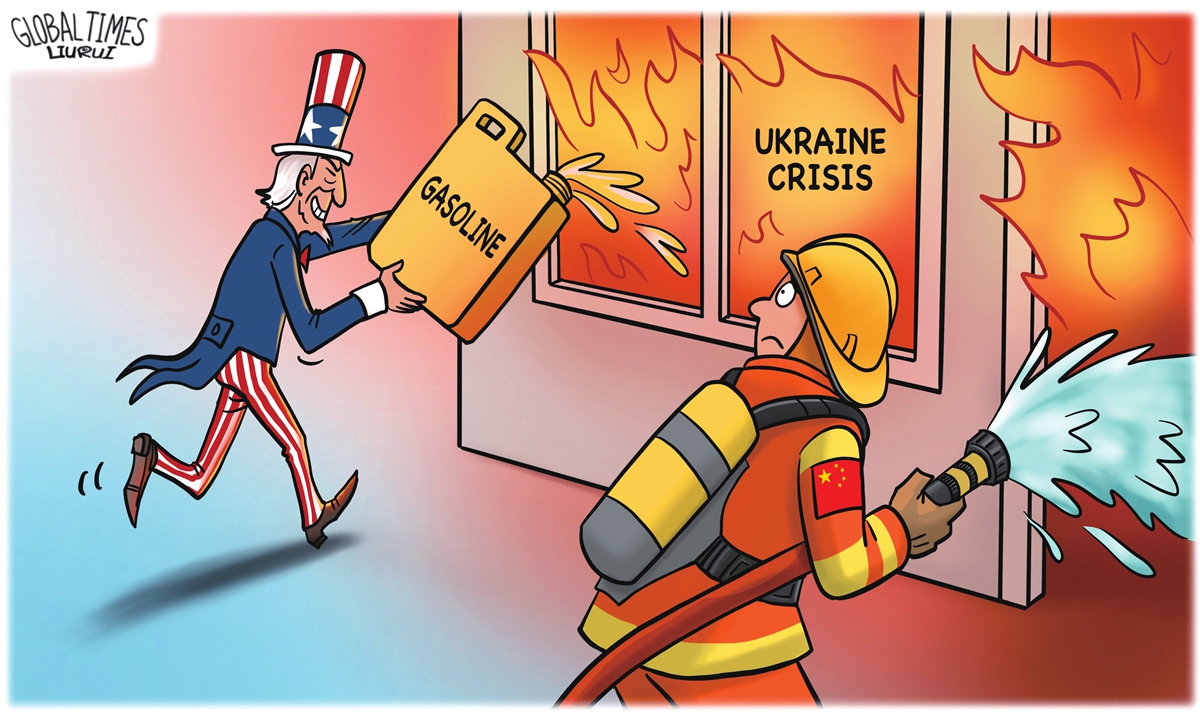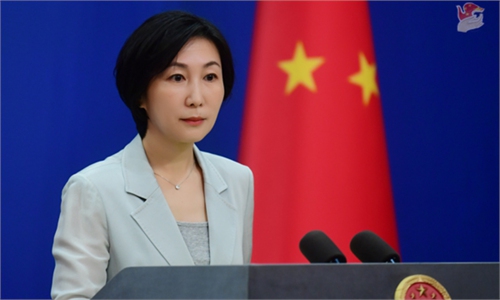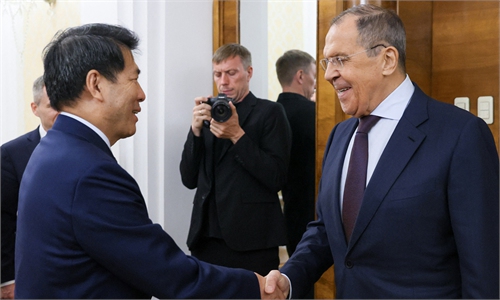Ukraine slaps WSJ in the face; spreading misinformation only disrupts peace efforts

Illustration: Liu Rui/Global Times
On the day that Special Representative of the Chinese Government on Eurasian Affairs Li Hui visited Moscow on the last leg of his European trip, the Wall Street Journal (WSJ) ran an article that completely contradicted the facts and even fabricated stories. Such behavior that attempted to impose its own views and practices on others is in fact obstructing the peaceful resolution of the Russia-Ukraine conflict. Facts have proven that blindly fueling the fire can only escalate the conflict and cause more harm to people.The article began by stating that the Chinese envoy carried a clear message that "US allies in Europe should assert their autonomy and urge an immediate cease-fire, leaving Russia in possession of the parts of its smaller neighbor that it now occupies," accusing China of trying to split the West.
However, what the WSJ received was a denial from Ukrainian Foreign Minister Dmytro Kuleba. On May 27, Kuleba said in a video message that after the article appeared, he immediately contacted his colleagues in the European capitals visited by Li. None of them confirmed that negotiations about what the WSJ suggested were held.
In response to this, Foreign Ministry Spokesperson Mao Ning stated on Monday that she noted that the Foreign Minister of Ukraine publicly said that he contacted other parties and no country said Li made the remarks reported by the WSJ.
Song Zhongping, a Chinese military expert and TV commentator, noted that Kuleba is well aware of China's influence, and it is impossible for a Chinese envoy to express such views. China's goal is to promote peace talks, and the 12-point peace proposal has clearly stated its ideas and suggestions. Therefore, the rumors spread by the US media are just an attempt to discredit the role played by the Chinese envoy in mediating the Russia-Ukraine conflict.
"From the perspective of the US, it only hopes that China can do one thing - to make Russia withdraw its troops. In US' logic, if Russia is not doing this, China is not fulfilling its international responsibilities," Song said. The expert stressed that the initiator of the Russia-Ukraine conflict is the US, but it keeps blaming China, which China will not accept. "It is impossible for Washington to change its stance on this issue. Hence, we need to clarify the facts and prevent international community being misled by rumors," Song said.
Zhang Hong, an associate research fellow at the Institute of Russian, Eastern European and Central Asian Studies of the Chinese Academy of Social Sciences, also said when Li met with Russian Foreign Minister Sergey Lavrov, he specifically emphasized the UN Charter and international law, which shows that China respects the UN Charter and international law in resolving the Russia-Ukraine issue. This is one of the important principles for resolving the issue. China upholds its responsibility as a major country and promotes peace talks between Russia and Ukraine based on international law, rather than taking sides as the West claims.
Spreading false information will also harm Ukraine. Ukraine has become the biggest victim of this conflict. Moreover, the Ukraine crisis is actually a crisis of the Europe. As long as it continues, the security threat to Europe will not be eliminated. "We are in the same global village, and no one should incite war or hinder mediation out of its own selfish interests. The dissemination of false information by the US media is actually obstructing the peaceful resolution of the conflict," Zhang stressed.
The rumor-mongering WSJ has remained silent despite being slapped in the face, and these US media outlets only cater to US politicians, selectively reporting without regard for the facts and objective truth. They often spread rumors, but choose to remain silent when they are debunked. This reveals their hypocrisy. The US' so-called freedom of speech is actually freedom of spreading rumors.
China and the US have completely different approaches when it comes to the Russia-Ukraine conflict. The US continues to touch the red line and add fuel to the fire, while China is advocating for peace talks and actively mediating, trying to solve the problem through diplomatic means.
Washington sees the Russia-Ukraine conflict as a geopolitical tool, using it to undermine globalization, revive NATO, and hijack Europe's diplomatic and security autonomy. It is clear that in the eyes of the US, the Russia-Ukraine conflict is used to sustain its global hegemony, and it does not want to quickly end the conflict. The suffering of the Ukrainian people means nothing to it.


